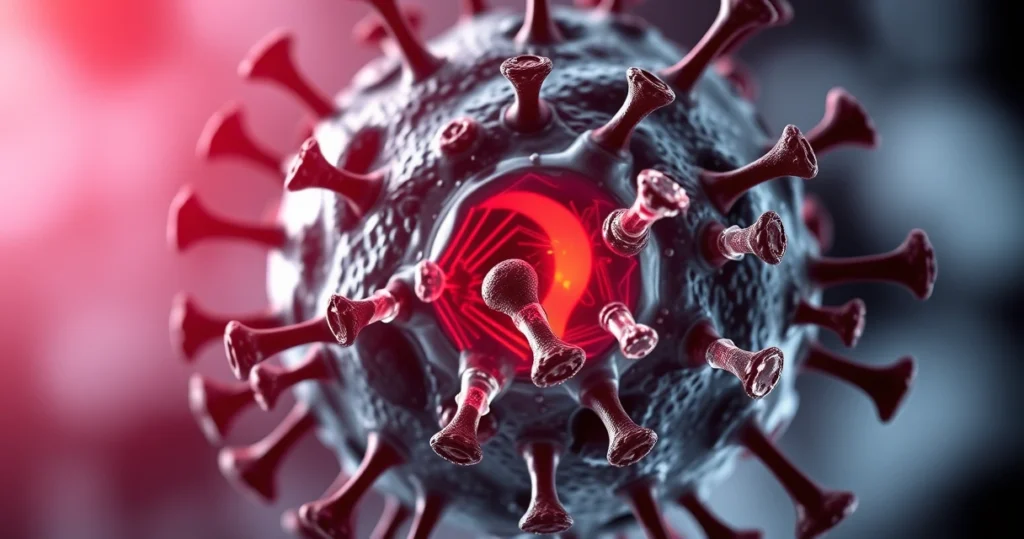Groundbreaking Study Reveals Immune Response to Combat Oropouche Infection and Prevent Neurological Damage
The recent surge in Oropouche virus infections in Brazil has raised significant concern among health professionals and researchers. A groundbreaking study conducted on mice has unveiled critical insights into the immune response elicited by the Oropouche virus, suggesting potential pathways for treatment that could help mitigate neurological damage associated with the infection. This research not only sheds light on the disease but also emphasizes the urgency of developing effective therapeutic strategies to combat its growing prevalence.

Oropouche virus, a member of the Orthobunyavirus genus, is primarily transmitted by mosquitoes and is responsible for acute febrile illness, with the potential for severe neurological complications. As Brazil has seen a marked increase in confirmed cases in recent years, understanding the immune response to this virus becomes ever more crucial. This article delves into the recent findings, their implications for treatment, and the future directions of research in this area.
Understanding Oropouche Virus and Its Impact
Oropouche virus was first identified in the 1950s but has gained attention in recent years due to outbreaks in Brazil and other South American countries. The virus is transmitted mainly by the mosquito species Sabethes and Aedes, with human infections leading to symptoms that include fever, myalgia, and headache. In some cases, the infection can escalate, resulting in neurological complications such as encephalitis.
Symptoms and Complications of Oropouche Infection
Patients infected with the Oropouche virus typically present with a range of symptoms. Initial signs often resemble those of other viral infections, which can lead to misdiagnosis. Key symptoms include:
- High fever
- Severe headaches
- Muscle and joint pain
- Rash
- Neurological symptoms, including confusion or seizures
The neurological manifestations of Oropouche virus can be particularly concerning, resulting in long-term health issues and increased morbidity. This has prompted researchers to investigate how the immune system responds to the virus and how this response can be harnessed to prevent or minimize such damage.
The Immune Response to Oropouche Virus
The recent study conducted on mice provides significant insights into how the immune system combats the Oropouche virus. Researchers observed that the immune response involves both innate and adaptive immunity, which play critical roles in controlling the viral load and preventing neurological complications.
Innate Immune Response
The innate immune response is the body’s first line of defense against viral infections. In the case of Oropouche virus, the study found that the activation of interferon pathways is crucial. Interferons are proteins that inhibit viral replication and modulate immune responses. This early response is essential for controlling the spread of the virus within the body.
Adaptive Immune Response
Following the innate response, the adaptive immune system kicks in, characterized by the activation of T cells and B cells. The study highlighted that the production of specific antibodies against the Oropouche virus is critical for long-term immunity and preventing reinfection. Furthermore, the presence of memory T cells was noted, which can provide rapid responses upon subsequent exposures to the virus.
Preventing Neurological Damage: Implications for Treatment
One of the most significant findings of the study is the potential to prevent neurological damage associated with Oropouche infection. The immune response not only helps to control the viral load but also appears to play a protective role in the central nervous system (CNS).
Therapeutic Strategies
Based on the findings, several therapeutic strategies may be developed to enhance the immune response against the Oropouche virus. These strategies include:
- Vaccine Development: Creating a vaccine that stimulates both innate and adaptive immunity could provide protective effects against the virus.
- Monoclonal Antibodies: Administering specific antibodies may help neutralize the virus and reduce the risk of neurological complications.
- Immunomodulatory Treatments: Drugs that enhance immune responses or modulate inflammation could be beneficial in managing severe cases of infection.
Challenges and Considerations
Despite these promising strategies, several challenges remain. The complexity of the immune response, variability among individuals, and the need for effective delivery systems for vaccines or treatments are areas that require further investigation. Additionally, ongoing monitoring of Oropouche virus outbreaks is essential to adapt therapeutic approaches to emerging strains of the virus.
Growing Concern: The Rise of Oropouche Cases in Brazil
Statistics indicate a significant rise in Oropouche virus cases in Brazil over the past few years. Health authorities have reported thousands of confirmed cases, underscoring the need for public health interventions and research initiatives. The impact of climate change and urbanization on mosquito populations is believed to contribute to this increase, making it imperative to address environmental factors alongside medical advancements.
Public Health Initiatives
The Brazilian government, alongside international health organizations, is taking steps to combat the spread of the Oropouche virus. Initiatives include:
- Vector Control Programs: Reducing mosquito populations through targeted insecticide spraying and public awareness campaigns.
- Surveillance and Reporting: Enhancing disease surveillance systems to ensure timely reporting and response to outbreaks.
- Community Education: Educating the public about the virus, its transmission, and prevention strategies.
Frequently Asked Questions (FAQs)
1. What is Oropouche virus?
The Oropouche virus is a mosquito-borne virus that can cause febrile illness and potentially lead to neurological complications.
2. How is Oropouche virus transmitted?
The virus is primarily transmitted by mosquitoes, particularly species like Sabethes and Aedes.
3. What are the symptoms of Oropouche infection?
Symptoms include high fever, severe headaches, muscle pain, rash, and in some cases, neurological symptoms.
4. Is there a vaccine for Oropouche virus?
Currently, there is no licensed vaccine available for the Oropouche virus, but research is ongoing to develop effective vaccines.
5. How can neurological damage from Oropouche virus be prevented?
Understanding the immune response and developing therapeutic strategies, such as vaccines and monoclonal antibodies, may help prevent neurological damage.
Conclusion
The recent study on the immune response to Oropouche infection offers a beacon of hope in the fight against this emerging viral threat. By elucidating the body’s defense mechanisms, researchers are paving the way for potential treatments that could significantly reduce the risk of neurological damage. As Brazil continues to grapple with rising cases, the collaboration between scientists, healthcare professionals, and public health officials will be essential to implement effective strategies and safeguard the health of individuals at risk. Ongoing research and public awareness will be critical in controlling the spread of the Oropouche virus and ultimately improving treatment outcomes for those affected.
📰 Original Source
Este artigo foi baseado em informações de: https://gizmodo.uol.com.br/pesquisa-identifica-resposta-imunologica-para-controlar-infeccao-por-oropouche-e-evitar-dano-neurologico/



